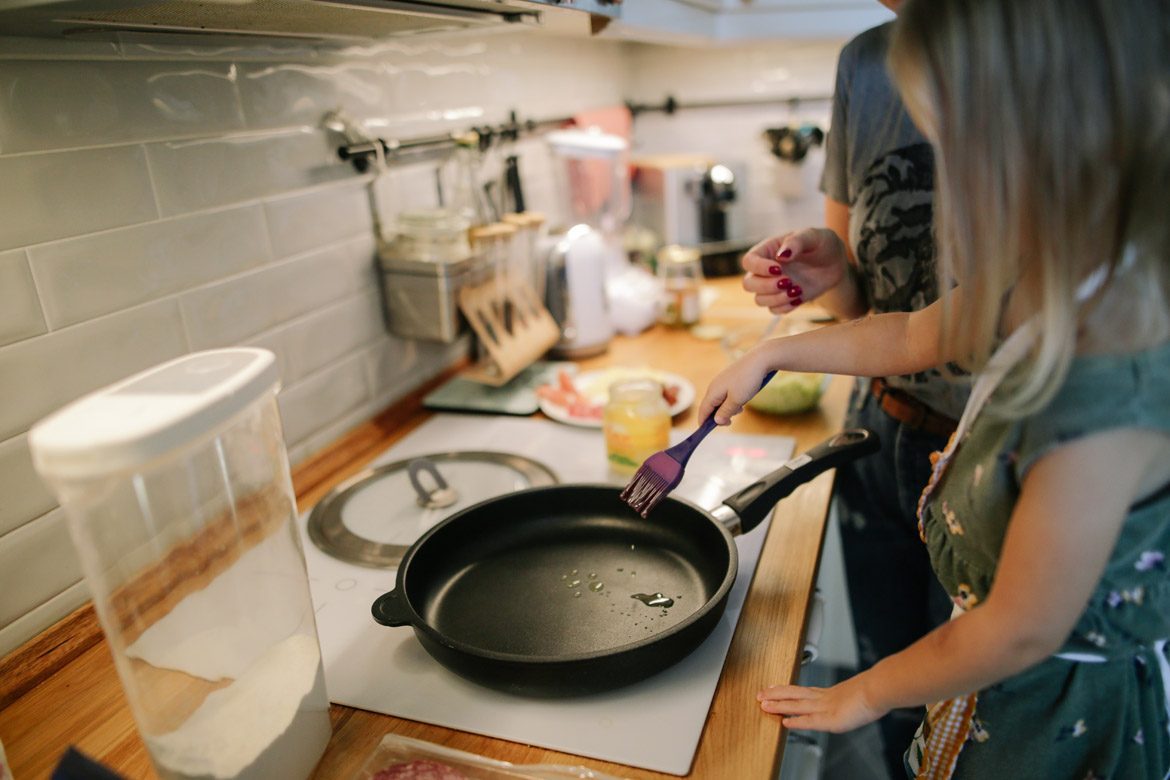Excerpted fromThe Gift of Failure: How the Best Parents Learn to Let Go So Their Children Can Succeed by Jessica Lahey.
A friend told me recently after she’d had a car accident that left her unscathed but chastened that in the midst of the crash, she’d realized she needed to make lists of all the small details her family would need to know if she was not there to take care of them. Her son needed to know that his soccer clothes had to go into the laundry Sunday so he’d have what he needed for Monday’s practice. Her daughter needed to know which fabrics can go in the dryer and which cannot and what happens when wool sweaters sneak into the dryer by mistake. The kids should know how to fix the toilet when it clogs, and reset the water pressure tank after a power outage, and change a fuse, and winterize the lawn mower, and the million other things she’d taken care of herself rather than burden her kids with.
I pointed out that if she were to die in a car accident, the location of the reset lever on the water tank would be the least of her family’s worries, but I understood her point. She’d gotten a glimpse of just how paralyzed and incompetent her kids would be in her absence. When we don’t allow our children to participate in the business of running a household, they are quite helpless without us. Worse, we don’t expect competence from them, and when they do give household duties a shot, we swoop in, and we fix.
When we don’t allow our children to participate in the business of running a household, they are quite helpless without us.
We swoop in after our kids make their beds and smooth out the lumps and bumps. We swoop in after they fold the laundry and straighten the misfolded towels. I’ve actually taken the sponge out of my son’s hands because he was making more of a mess of the milk he was supposed to be cleaning up. I understand the impulse to want things done better, or faster, or straighter. But what’s more important — that the dishes are immaculate, or that your child develops a sense of purpose and pride because he’s finally contributing in a real and valuable way to the family? That the bed is made without wrinkles, or that your child learns to make household tasks a part of his daily routine? All this swooping and fixing make for emotionally, intellectually, and socially handicapped children, unsure of their direction or purpose without an adult on hand to guide them.
Just because your child has never done the laundry, or loaded the dishwasher, does not mean she is not capable of doing just that. And kids want to feel capable. They are creative and resourceful, and even tasks that seem unmanageable due to limits of heights or dexterity can be accomplished with the aid of a step stool and simple directions. Those dishes that belong in the high cabinets above the counter? It took a half hour, but when my younger son was first assigned dishwasher duty at 6 or 7, he dragged a chair from the living room to reach the shelves. One by one, he put those plates away where they belonged. When I had asked him to “unload the dishwasher”, I’d forgotten about the high shelves but he’d figured a way around that obstacle himself. The look of pride he gave me when I said, “Wait — you did all of it? Even those plates?” was utterly gratifying. Failure has been a part of that process, of course. Since that first day, he has broken dishes in the process of learning how best to carry, stack, and load them, but who cares? I’d trade 10 broken plates for his smiles of competence and pride.
I understand the impulse to want things done better, or faster, or straighter. But what’s more important — that the dishes are immaculate, or that your child develops a sense of purpose and pride because he’s finally contributing in a real and valuable way to the family?
Explain to your children from an early age that you expect them to contribute to the running of the household. If they are older and have never been asked to contribute before, be honest. Cop to the fact that you failed yourself and have been underestimating their abilities all along. Set clear expectations, and hold your kids accountable when they don’t meet those expectations. If your daughter’s job is to clean up her place after meals and rinse the dishes before putting them in the dishwasher, and she forgets, leave the dishes out. Explain to her that the once-easily-rinsable food dries over time, and it will be much harder to clean it off when she finally gets around to it, but the dishes will remain on the table, waiting for her to clean them up. Even if that dish sits on the table for two days, don’t nag or hover, and absolutely no swooping or fixing, but be present and help problem-solve. Be there to help if your son is not sure about a cycle setting on the washer or if something goes horribly awry with the fabric softener, but find something absorbing to do while he goes about the work. If you go behind your child’s back and redo the chore he has just finished to his satisfaction, even if it’s after he’s left the room, he’ll notice. You will be telling him through your actions not only that he is incompetent but that you will finish the job if he’s careless.
And no bribes or rewards of cash payment — those kinds of short-term incentives can be used to kick-start motivation but don’t work as a long-term strategy. When I praised my son for putting those plates away in the high cupboards, I was not praising him for taking on the task, because he knew I expected that of him. Rather, I was praising him for the extra effort, determination, and perseverance he showed when he hit a roadblock.
Even toddlers, with their diminutive hands and limited attention spans, can begin to explore their abilities and competence in shared household responsibilities. When dealing with younger children, be sure to make your expectations clear and age-appropriate. Communicate family participation as a privilege, or even a game, and toddlers can accomplish more than you might expect. Here are some examples of the kinds of tasks toddlers are capable of learning:
- Put their dirty clothes in a basket or hamper.
- Dress themselves with clothing that’s not too complicated.
- Fold simple items of clothing or linens such as pillowcases or washcloths.
- Put their clothes away in drawers.
- Follow two- or three-step directions in order to complete tasks. (“Get your toothbrush, put toothpaste on it, brush your teeth.”)
- Throw trash and recycling away in the proper place.
- Put toys away in tubs and baskets when they are done playing with them.
- Get out and put away their dishes as long as you arrange their cups and bowls on a low shelf.
- Feed the dog or cat.











